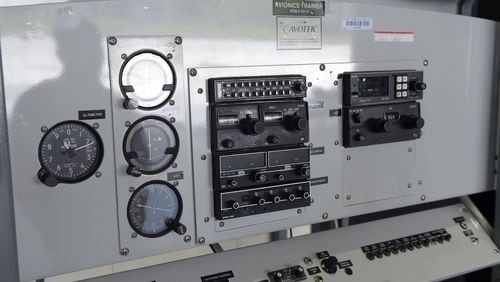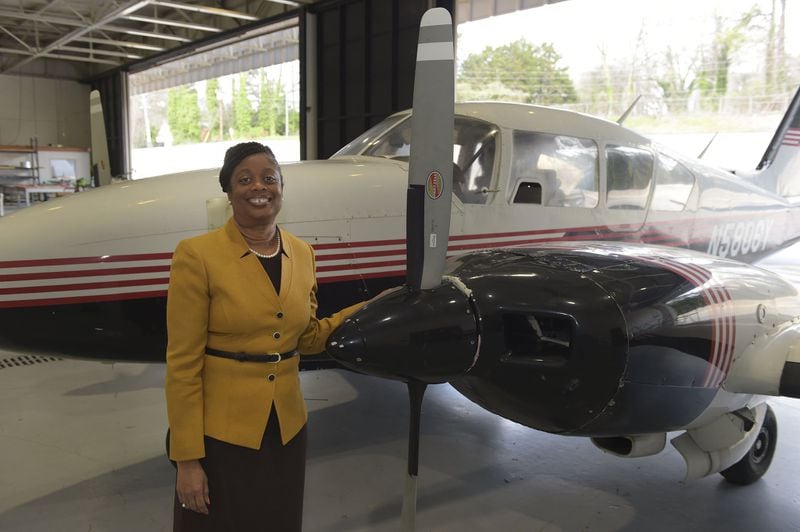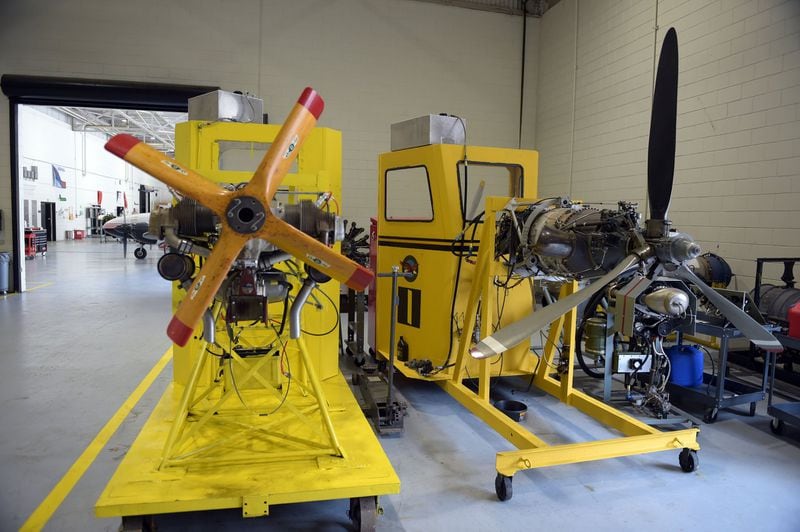With air travel expected to double in the next 20 years, according to industry experts, the demand for all related occupations will soar. That’s what officials at Atlanta Technical College were banking on when its decades-old aviation maintenance programs were upgraded seven years ago. But in December, the U.S. Department of Transportation’s Federal Aviation Administration alleged the college failed to maintain strict government standards. The FAA suspended its air agency certificate, the official authorization for such training programs. To date, Atlanta Tech is still working to bring the program up to compliance.
According to the FAA:
- Student grade records were either not maintained or incomplete and were not signed by instructors. Several students who had not made up absences were nevertheless allowed to move on to the next block of instruction.
- Atlanta Tech hasn't enrolled any students or conducted any classes in the aviation maintenance technology program since May 2014.
- Although the FAA rescinded the college's approved curriculum in June 2014, it continued to administer exit examinations and issued certificates of completion to its former students when it knew it was not authorized to do so.
- Additionally, Atlanta Tech did not provide the FAA with requested copies of each certificate of completion and a detailed analysis of how students received certificates in the absence of an FAA-approved curriculum.
Atlanta Tech doesn’t deny any of the allegations, but during a recent interview President Victoria Seals, who just came to the college last year, wanted to focus on the program moving forward instead of the apparent missteps.
“We’re working to revamp the curriculum and meet the FAA guidelines,” she said. “This program is a priority resource, we want to take our time to do it right and not rush the process.”
Although there were no students in the program, Atlanta Tech has spent an excess of $2 million since 2014 on supplies, equipment, salaries and benefits. Three new Piper airplanes were acquired within the past year. In addition to the three new planes, other functioning aircraft include a Piper, which was acquired about five years ago, and an Aztec airplane. There is also an experimental Piper that is used for teaching students to do airframe repairs.
Credit: Kent Johnson
Credit: Kent Johnson
The multimillion-dollar investment of public funds has sat idle for more than two years. And even though the state-of-the art equipment, modernized classrooms and reconfigured work space is ready for students, the department doesn’t have a program coordinator.
Even though his name was on the website earlier this month, Atlanta Tech told the AJC that the former program coordinator, Ernest Delgado, resigned and they are looking for his replacement.
“One challenge we face in recruiting and keeping great staff is the competition with the airline industry,” said Atlanta Tech spokeswoman Lauretta Hannon. The interview process has already begun, and Seals said she hopes to have someone on board by fall.
Since the revamp in 2010, there have been 1,377 students in two aviation maintenance technical certificate programs, airframe and power plant.
FAA officials didn’t have much to say about the situation, just that Atlanta Tech must contact them when it is ready to present the modified program materials.
“The school would have to comply with Federal Aviation Regulation Part 147,” which spells out the air agency certificate requirements, “before the certificate could be reinstated,” spokeswoman Kathleen Bergen said via email.
With the world’s busiest airport mere miles away, Atlanta Tech officials say they are working with business partners from Delta Air Lines and Southwest Airlines to bring the program up to speed.
A spokeswoman for Southwest confirmed that some employees of the airline’s Atlanta crew are volunteering their personal time and their industry expertise to Atlanta Tech as it re-evaluates its aviation maintenance technology program.
Credit: Kent Johnson
Credit: Kent Johnson
“We’re certainly working toward bringing this program on track,” said Murray Williams, vice president of Academic Affairs. “We get as many as 100 to 150 inquires a month.”
Currently, the only aviation-related program offered is avionics bench technician. That two-semester course of study prepares students for employment in the field of avionics maintenance technology and aircraft electronics.
The job of an aviation maintenance technician
Aviation maintenance technicians basically keep passengers and flight crews safe. As part of that, they diagnose aircraft problems, repair and replace parts, meet performance standards and record all their work. They work in various settings and scenarios: for the government, for private employers, outdoors, indoor, in hangars, at airports and at repair stations. According to the Aeronautical Repair Station Association, about 473,000 people work in more than 4,700 repair facilities across the globe. The Bureau of Labor Statistics reported a median pay of $58,390 per year nationally and $72,120 in Georgia in 2015. And demand for the occupation will grow by about 7 percent in the next 10 to 15 years.
Students who are interested in aviation maintenance technician careers can search for FAA Part 147 schools on the FAA website: av-info.faa.gov/MaintenanceSchool.asp
About the Author









